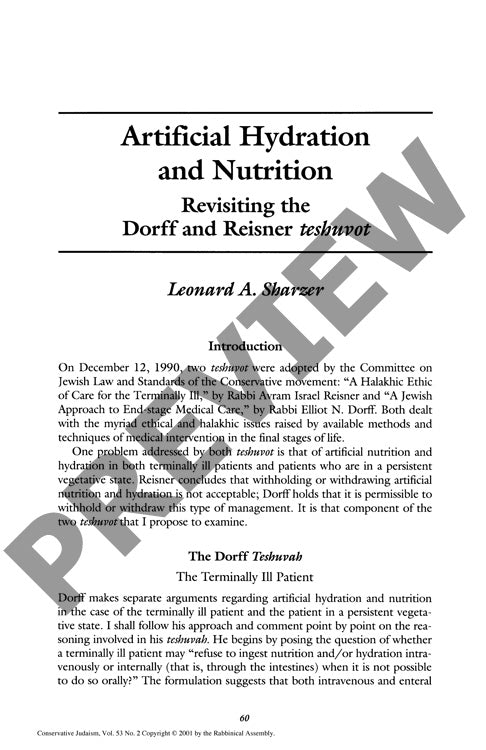Artificial Hydration and Nutrition Revis
Couldn't load pickup availability
When terminally ill patients can no longer eat or drink, should artificial nutrition and hydration be maintained or withdrawn? Two prominent Conservative rabbis, Elliot Dorff and Avram Israel Reisner, have reached opposing conclusions on this critical end-of-life question. Through detailed analysis of their teshuvot (responsa), this research evaluates the rabbis' divergent halakhic and ethical arguments. Dorff permits withholding both artificial nutrition and hydration, arguing they constitute medical interventions rather than food, while Reisner prohibits such withdrawal, equating nutrition with medication and maintaining that life-sustaining measures must continue. A systematic examination of each rabbi's reasoning reveals how they differently interpret Jewish law regarding end-of-life care, the distinction between causing death versus removing impediments to natural death, and the principle of acting in patients' best interests. The analysis yields an alternative approach that treats artificial nutrition and hydration as distinct categories. Artificial hydration should be maintained in both terminally ill and persistent vegetative state patients because its removal can hasten death and provides no patient benefit. However, artificial nutrition may be withheld in terminally ill patients as it constitutes an impediment to natural death, while in persistent vegetative state patients, nutrition should be provided at minimal levels to maintain basal function. This nuanced position seeks to balance competing halakhic principles while addressing the complex medical realities of modern end-of-life care.

More Information
-
Physical Description
-
Publication Information
Published 2001
ISBN
-
Publication Credits
Leonard Sharzer

